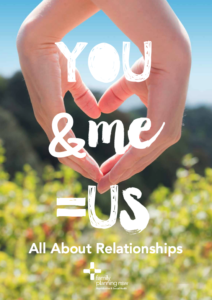The internet can be an extremely useful tool in supporting the education of children with intellectual disability and autism spectrum disorder. As you journey through Planet Puberty, you’ll find that there are a lot of strategies that involve utilising tablets, phones, YouTube and other different digital platforms to assist your child in things like communication, visual scheduling and creating social stories. Internet connected devices can also be a much-needed support for parents, especially when you want some private time or when your child wants some entertainment! See Self-Care.
Parents are often concerned about their child’s access to the internet and how they can keep them safe. One of the most common concerns parents have about is how to protect their child from seeing pornography and how to support children who may have been exposed to pornography online. This can be a particular concern for parents of children with intellectual disability or autism spectrum disorder who may have trouble processing what they have seen and who may fixate on a specific topic.
Find below answers to the common questions that parents have asked about pornography.
We also recommend checking out the resources from the eSafety Commissioner about online pornography for some great videos and factsheets to support you and your family https://www.esafety.gov.au/parents/big-issues/online-pornography
- image sharing with peers over text and social media including Snapchat, Instagram and Facebook
- searching terms they may have picked up from peers like “boobs”, “sex” or “naked people”
- videos recommended by YouTube or linked on webpages
- YouTube videos or games that have been edited with a pornographic/violent version
- clicking on spam links or links appearing in otherwise innocent search results, emails or social media posts
- clicking on links that appear in the chat functions of games, for example, Discord, Roblox and Minecraft
-
Stay calm
-
Assess the situation
- how did they find the image?
- did anyone show it to them?
- how do they feel about what they saw?
- do they have any questions about what they saw?
-
Reassurance
-
Educate
- asking and receiving consent
- importance of intimacy and close relationships
- body image and diversity
- the difference between acting and real life
- image sharing with peers over text and social media including Snapchat, Instagram and Facebook
- searching terms they may have picked up from peers like “boobs”, “sex” or “naked people”
- videos recommended by YouTube or linked on webpages
- YouTube videos or games that have been edited with a pornographic/violent version
- clicking on spam links or links appearing in otherwise innocent search results, emails or social media posts
- clicking on links that appear in the chat functions of games, for example, Discord, Roblox and Minecraft
-
Stay calm
-
Assess the situation
- how did they find the image?
- did anyone show it to them?
- how do they feel about what they saw?
- do they have any questions about what they saw?
-
Reassurance
-
Educate
- asking and receiving consent
- importance of intimacy and close relationships
- body image and diversity
- the difference between acting and real life




